Still Trying to Be In the Mile I'm In
Even during crisis—a personal update about surgery and the LA fire
Tip: If you prefer listening rather than reading, you can use a text-to-speech function through the Substack app. Find this post in the app and you’ll see a play button at the top, as shown in a screenshot of last week’s post when viewed on the app.
I almost didn’t publish this post
Knowing that today, January 8, I’d be preoccupied with my daughter’s recovery from a complex surgery, I prepared this week’s following story a few days ago by excerpting and updating one of my most popular 2022 posts, because its message is relevant for any new year. Since fewer than half of you were subscribers back then, I hope this post will be fresh for you, and I include a couple of new recommendations at the end.
Then the inferno in Pacific Palisades, northwest of Los Angeles, erupted yesterday and forced my in-laws, who are in their mid-80s, to evacuate to a relative’s house, which may later today become an evacuation zone, we just don’t know. Waking up today, we can’t know for sure but are assuming my husband’s parents most likely lost their house, as the neighborhood around it is destroyed. I only got 3.5 hours of sleep due to monitoring the news and sharing my husband’s stress and heartache about what to do for his parents and all they lost, and the grief of seeing this neighborhood community, where we spent so much of our lives, go up in flames, with desperate people feeling and many pets trapped behind.
This is a screenshot of a video of my daughter finishing a Thanksgiving 5K at Palisades High, which is less than a mile from my husband’s boyhood home where his parents still live. The track and field and whole school burned, and the entire neighborhood next to it. The church up the hill that we got married in—a major source of community connection and support for my in-laws and their peers—is almost surely gone. Nothing can be verified due to safety risks reporting in the area.
For now, there’s no stopping the fire due to the wind, lack of firefighting resources, and even lack of water as hydrants are failing. It is spreading in all directions, and two other wildfires broke out in the region. Because air resources have been grounded in the extremely high winds, CalFire’s map probably has not been accurately updated as of this morning.
Meanwhile, I was with my 26-year-old daughter yesterday while she had surgery for a fractured tibial plateau (the head of the shinbone, which broke when her thigh bone slammed down on it during a skiing accident December 26). Because the fracture was displaced and fragmented, she needed a plate with five screws implanted. Thankfully, she was in the best possible hands at the Steadman Center. She is recovering as well as she can be, and the surgery was a success. I am so grateful she was in Colorado with us to have this done at the very best orthopedic surgery center. She lives in Los Angeles, south of the Palisades fire. She stayed here because we could not schedule with LA orthopedic surgeons until late January, and the fracture needed surgery within two weeks of the accident or else it would begin to heal wrong. Plus, she needs our assistance with care post-op.
But get this—her basic “California Covered” insurance through Blue Shield-Blue Cross is completely denying coverage because we “chose” to have the surgery in Colorado rather than in California, and it “wasn’t an emergency.” We had to self-pay in the mid-five figures and now face an insurance appeal. My daughter was on individual coverage offered through the state because she recently left her company and its better group insurance. This is a very difficult transition time for her on all levels, to say the least.
So now I am in management mode, caring for her, for my distressed husband, and trying to figure my in-laws’ status and what to do for them. My projects including this newsletter feel barely relevant at the moment. I will probably take a break for a week or two from publishing here.
I hesitated to share the story below because its message seemed trite in the midst of crisis and tragedy. But no, it’s actually a valuable message under any circumstance, including bad/scary times. So here it is, written during a better time two years ago and updated last weekend when I had a clearer mind.
Letting go
For the second time in my life, I tried ice climbing. My husband, daughter, and I met a guide at a lesser-known nook in a canyon near Telluride, where a short trail leads to a natural waterfall frozen into a massive curtain of bulging and glimmering bluish-white ice.
I felt much more confident and adept than when I first did it. I kicked the crampons and swung the picks to scale the ice with more determination and fluidity than a timid total beginner. Making methodical progress up the frozen wall, and studying the up-close details of the ice formation to get a grip on it, felt strangely satisfying and so different from my usual activity of running.
Everything slowed. My body moved upward instead of forward. My arms worked as purposefully as my legs. My mental chatter quieted as I concentrated entirely on choosing the next spot to make the ice pick or the crampons hold.
But when I reached the top, that confidence and focus evaporated. On the edge several stories high, I had to lean back and rappel, fully trusting the top anchor and the guide’s rope management. This is supposed to be the fun and easy part. Instead, I shrieked—uncontrollable yelps of fear and shouts of “Oh, Jesus!”—and resisted leaning back and letting go. It took a ridiculous amount of coaxing and reassurance from the guide to get me to transfer more of my weight onto the rope and push off with my legs to lower down.
I could have reacted completely differently. I could have countered the inner fear of the falling sensation by telling myself, “This is fucking awesome!” and audibly let loose a “wheee!” instead of a shriek.
This was only one of several times recently when I struggled to loosen my grip (mentally and literally) and relinquish control, to chill out, and to try to view the situation with enthusiasm and appreciation rather than anxiety.
For example, when we ski, I hook my arm behind the back of the lift’s chair and grip tight to feel secure and prevent falling out, even when using a safety bar. I tend to stay on high alert on the ski lift rather than relaxing and absorbing the beauty in the details of the setting.
Or when we host our annual bonfire party, I toy with worst-case scenarios involving someone or something lighting on fire from a wayward spark. I get in a business-like host mode, scanning for fire safety while also managing the party’s drinks and appetizers, rather than marveling at the bonfire’s beauty or fully enjoying the company of friends.
I’d like to let go of the tension from micromanaging, along with the visions of bad things happening, to be more of an observer in each moment and less of a controller. It’s all related to the practice of mindfulness, and it’s something I know takes effort. I need to practice letting go of worry about what-if’s and worst-case scenarios, along with letting go of regrets about past actions.
When I flew from Montrose through Denver to LA with my daughter, I had a chance to practice letting go and going with the flow while trying to be more present. All kinds of things during travel triggered me—the three-times-as-long-as-usual check-in and security lines at the regional airport, the delayed first flight that reduced our connection in Denver to about 20 minutes, the atmospheric river of moisture and wind that made the completely full plane jolt and shudder from turbulence, and the rental car lot that had run out of the kind of four-door sedan I had reserved.
With each stress trigger, I took deep belly breaths, tried to act cool about the situation, and tried to model equanimity and positivity. I told my daughter it’s fine, we’ll make our connection and our luggage will too, and I showed her the news online about how much the Southwest Airlines passengers are suffering from cancelled flights and lost luggage. Things can always be so much worse.
Funny thing, she turned out to be the better, more natural role model for me.
When the plane violently shook with turbulence and I imagined it falling from the sky, I looked over at her in the seat next to me and watched her sketch a design on her iPad, the stylus operating as an extension of her fingers and creative brain as she rapidly chose colors and drew lines and curves to develop a captivating image of a woman walking with a handbag slung over her shoulder. She was totally absorbed in her work project, which seemed as much like creative play as work, as it should be.
Shifting my focus from imagining airplane catastrophes to observing my daughter’s sketching, and marveling at the presence of my baby all grown up, I felt my shoulders and jaw relax. Whatever happens, I can be dazzled by this time with her right now. And I can try to be more creative and present like her, less mentally distracted and agitated.
Take what the trail gives you
When running long distances, I always tell myself and the clients I used to coach, “be in the mile you’re in.” Especially during ultras. Don’t ruminate about the miles past and troubles that may have occurred, such as a bruising fall or a wrong turn. Don’t dwell on all the miles still to come. Just settle into this mile and make the most of it.
Take what the trail gives you is the main advice in my book’s first chapter, meaning: if the trail gives you a smooth, runnable segment, then stride out and revel in the run. If the trail transitions to steep, technical footing, then adjust your pace and make peace with the vert and the tripping hazards. If the trail devolves into a muddy morass, then trudge through and try to keep your sense of humor.
Work with the trail—don’t fight it—and never forget that being out there is a gift and privilege.
Running isn’t a substitute for a good therapist (I know because I went through a few years of counseling earlier in life and learned about cognitive-behavioral therapy and mindfulness). Running also isn’t the same as meditation. And yet, I use running like self-therapy and active meditation to work through stress or other negative feelings, and to develop psychological traits including mindful observation and acceptance, which nurtures happiness and peace of mind. This running-therapy always is a work in progress that takes effort, yet I almost always finish a run feeling better, and the ripple effect improves non-running hours in the day.
Now, in early 2025, my running is on hold while I recover from injury. I turn to my other sport—riding and caring for our two horses—and my lifelong practice of homegrown self-taught equine therapy helps me feel and act better. Horses are great teachers and mirrors. They demand full attention while I’m working with them, and they reflect and respond to my moods and actions. Riding and grooming them with gentle, thoughtful movement is almost a kind of yoga, but with more biofeedback.
And horses don’t overthink or worry about anything. They model how to act intuitively and in the moment. Sure, part of their brain is always on high alert as herd animals that flee from threats, but they also rest meditatively like self-interested cats, finding deep stillness and reserving their energy for bursts of activity. They’re resting more during cold wintertime, extra heavy and hairy, exemplifying seasonal downtime. They’re the reassuring, comforting friends I need now while injured, more than my runner-friend peers with their Strava feeds that make me feel inadequate and envious from not-running.
Enthusiasm to the max
During that nerve-wracking ice-climbing descent from the ice wall, or those moments when I’m tense on a chairlift or managing situations like our bonfire, I could have done what I did on the airplane and what I do when I’m in the saddle: let go of fear and worry, move with the flow, and replace negative thoughts by observing what’s right next to or in front of me (or under me, when I partner and communicate with my horse). Chances are, whatever it is, on some level it’s beautiful or impressive or in some way deserving of gratitude, love, and respect. Or, at the very least, it’s interesting in its own way.
This train of thought reminds me of a classic new-year’s essay by
, about practicing maximum enthusiasm. It reads in part:“I urge you to notice when something is awesome, as it often is, and exclaim or murmur or just make a mental note of it. Isn’t it just goddamn fantastic that you have your health, for example? Or running water, or electricity? Or that you have enough money to actually pay someone else to make you a cup of coffee? … Your life, even the bad parts, is fucking amazing. And most of the small things that make up your life are amazing, too—mountain bike rides, rock climbs, ski runs, sunsets, stars, friends, people, girlfriends and boyfriends, dogs, songs, movies, jokes, smiles … hell, even that burrito you ate for lunch today was pretty phenomenal, wasn’t it?”
Heading into 2025, observing my now-injured daughter crutching around and resting, I’ll try to practice maximum enthusiasm about the awesomeness of healing and high-quality medical intervention. I’ll respect recovery for her and for me with more reverence, remembering it’s the flip side of training and sports, and I’ll try to open myself to the possibilities that downtime affords for things like reading, writing, movie-watching, togetherness, and all-new experiences.
I’m fully in this injured mile with my more-injured girl, looking for wonder while being the best mom and patient I can be, storing up energy and motivation for the burst of activity that I’m confident will come this spring.
If the opening to the story above made you want to try ice climbing, I recommend going to Ouray or Lake City, both charming historic mining towns in the San Juan Mountains of southwest Colorado. Ouray’s Ice Festival, with opportunities to learn ice climbing, takes place January 23 - 26, and Lake City’s Ice Festival happens February 3. Both regions have guides you can hire to learn ice climbing throughout winter.
Worth watching: Whatever your political stripe, I recommend The Apprentice film I watched the other night about a young Donald Trump and his morally bankrupt ferocious mentor, the attorney Roy Cohn (trailer here). Perfectly set in New York of the 1970s and ‘80s, both main actors are phenomenal. Fans like me of Jeremy Strong, who played Kendall Roy in Succession, especially will appreciate his performance as Cohn. It helps to listen to this Fresh Air NPR interview with Strong about his acting and this film for context.
Worth reading or listening to the audiobook: I really enjoyed David Nicholls’ latest novel You Are Here. I don’t read many rom-coms, but I became absorbed with these two funny and thoughtful characters as they traversed the English countryside and worked through their tortured loneliness and misunderstanding. I actually listened to the audiobook, and the two readers’ heavy British accents enhanced the experience. I’m taking a break from novels now as I finish two nonfiction books, both related to writing and creativity, but I have a stack of fiction I’m eager to read. How about you, any titles to recommend?
If you’d like to support this newsletter but would rather not commit to a paid subscription, please consider a small donation to this virtual tip jar.

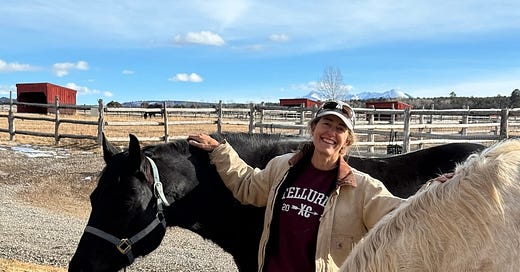

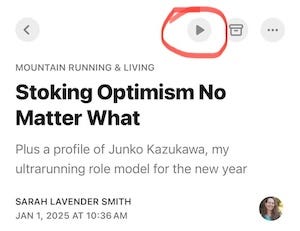
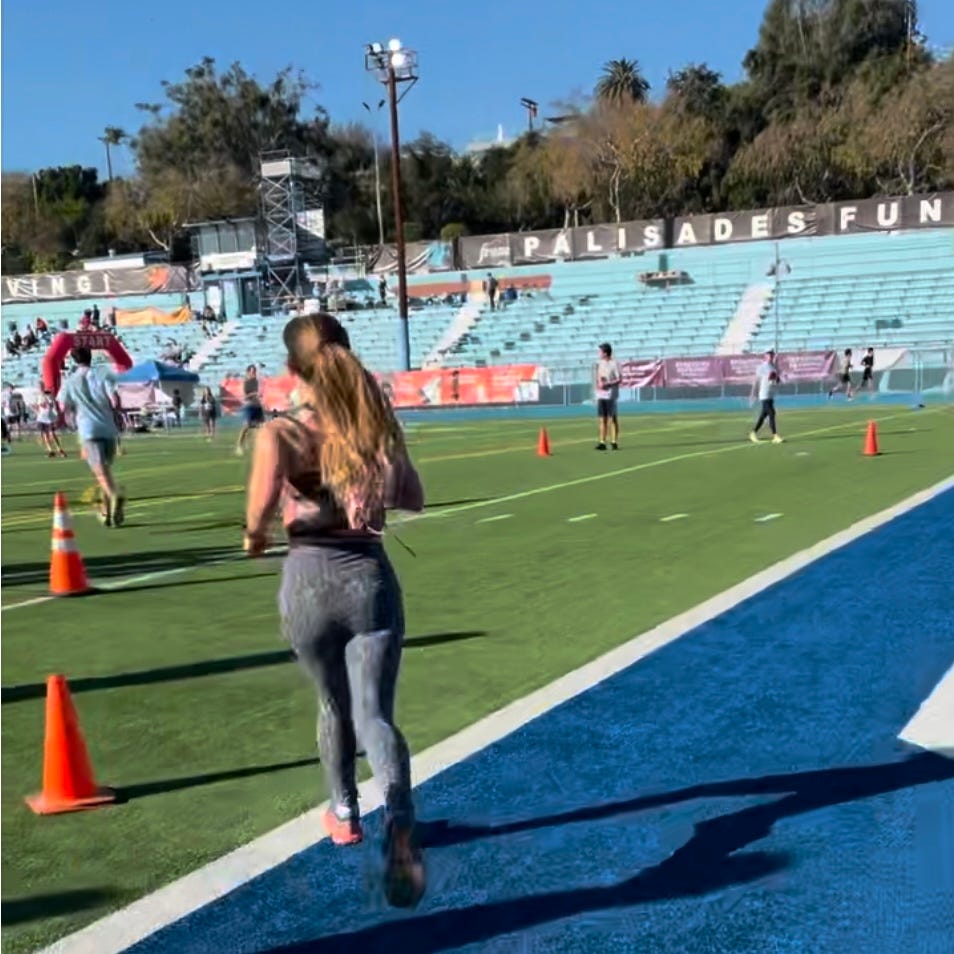
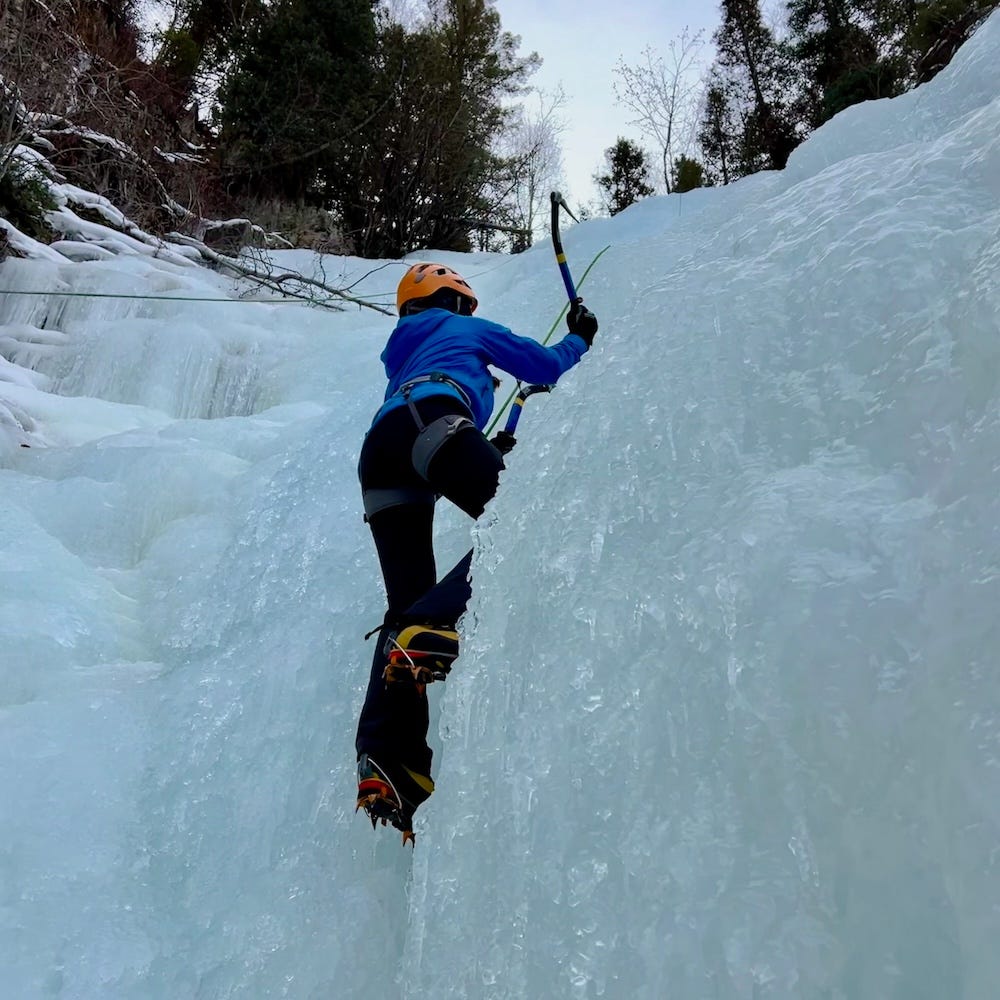

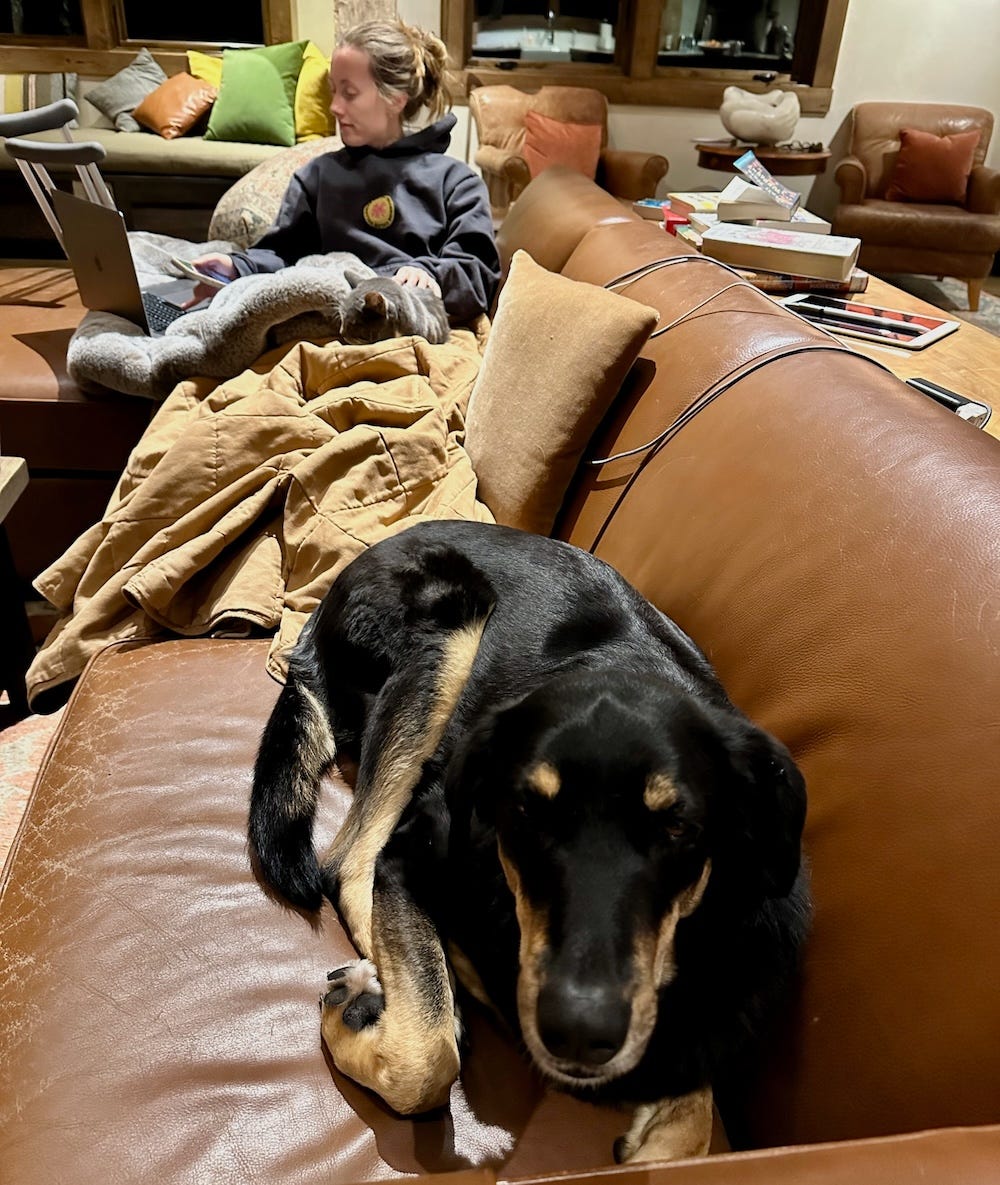

At least 4 fires north of LA are very bad. Sorry your in-laws are/were at ground zero.
btw, "resources" are surprisingly not helpful in situations like this - when the wind is above 50 mph (it was gusting above 80 mph) you make like Forrest Gump - everyone must run away as fast as they can. No one talks of "fighting" hurricanes; instead one prepares and hardens the landscape and structures. It's interesting how "fighting" is an assumed part of all our vocabulary.
omg, sarah, what a situation with this fire and its impact…I’m so sorry for your in-laws, and please give morgan a “hang in there” for me. The lack of resources to fight it in addition to the insurance bs for colly’s surgery must add up to lots of frustration right now. I’m scared to death of what could come down the pipe for us if there were to be a serious medical situation in my family. Being self employed, our insurance sucks big time.
I just read a great book called My Russian Grandmother and Her American Vacuum. So well written. It is a memoir by Meir Shalev (whom I found out just passed away last year) and seems like a simple book but there’s so much to it.
I’m glad you can focus on Colly right now 🩵